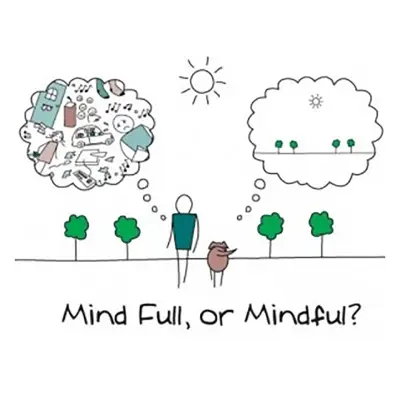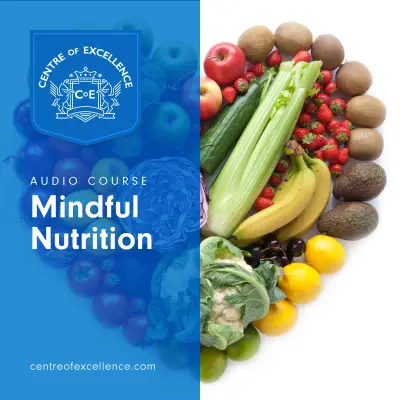How to Meditate Spiritually
If you want to enhance your wellness, spiritual meditation might be just what you need. At its core, this type of meditation is a technique that involves connecting with a higher power or the universe. It's a way to tap into your inner self and gain insight into your life and the world around you.
In this article, we'll explore how to meditate spiritually to deepen your connection to the universe and feel a sense of inner peace.
Jump to:
Understanding Spiritual Meditation
Spiritual meditation is a practice that has been used for centuries to connect with the divine. It is a highly individual experience that can feel different for each person.
At its core, this type of meditation connects to something greater, vaster, or deeper than the individual self.
It serves as a tool for attaining spiritual awakening by expanding your awareness levels and moving past the "monkey mind".
Holistic meditation can be practised in many ways, depending on your beliefs and preferences. Some prefer to meditate alone in a quiet space, while others enjoy group meditation sessions. Some people use guided meditations or visualisations, while others sit in silence.
Regardless of how you choose to meditate, it is important to approach it with an open mind and a willingness to explore your inner self.
With repetition, you can develop a deeper connection with the spiritual realm and better understand your place in the universe.
Recommended for you!
Best SellersTypes of Holistic Meditation
You can meditate spiritually in different ways, each providing a unique focus and set of benefits. Here are three of the most popular types of spiritual meditation:
Mindfulness Meditation
Mindfulness meditation is a practice that involves being present with your current thoughts, feelings, and experiences and refraining from the need to judge or label them.
The focus of mindfulness meditation is often the breath or other bodily sensations. As you learn to witness your internal experience without attachment, you can cultivate a sense of calm and inner peace and improve your overall well-being.
Transcendental Meditation
Transcendental meditation is a type of meditation that involves the use of a mantra, a word or phrase that is repeated silently to yourself for the duration of the meditation.
By using constant repetition, the brain reaches a deeper level of focus as external distractions melt away.
Although this type of meditation might require some training, it's a very popular method due to its effectiveness in quieting the mind and reaching higher states of consciousness.
Zen Meditation
This meditation type has roots in India, China, and Japan and has been practised for centuries.
Zen meditation involves sitting in a specific posture and practising breathing techniques with half-open eyes. A general sense of body awareness is cultivated through learning to expand your focus.
Zen meditation is often practised in a group setting, and it can be useful to have a teacher or guide who can help you learn the proper technique.
Intuitive Meditation
Intuitive meditation is a unique form of meditation that encourages individuals to connect with their inner thoughts, feelings, and sensations in a spontaneous and unstructured manner.
Unlike traditional forms of meditation that often involve specific techniques or mantras, intuitive meditation encourages a free-flowing exploration of one's mind.
Practitioners are guided to let go of rigid structures and predetermined expectations, allowing their thoughts to arise naturally and without judgment.
The reality is that learning how to meditate spiritually can be attained through any technique. It's about finding a practice that is the most effective for you.
Benefits of Spiritual Meditation
Although all forms of meditation offer a range of physical, mental, and emotional benefits, spiritual meditation offers a unique set of advantages to the regular practitioner. Here are some of the benefits that you're likely to experience with ongoing practice:
1. Expanding Awareness
Holistic meditation opens up your awareness of daily life's magic and beauty. As you enhance your spiritual connection, you begin to see the miracles surrounding you.
You'll begin to notice how everything and everyone is interconnected. A sense of wonder accompanies everyday interactions and an expanding awareness of the synchronicity of life.
2. Mindset Improvements
Engaging in spiritual forms of meditation can bring remarkable mindset improvements, which help create a more fulfilling life.
By meditating regularly, individuals learn to be fully present in each moment. This heightened mindfulness naturally extends to daily life, allowing for greater focus, reduced stress, and improved decision-making.
Holistic meditation often encourages a sense of gratitude for the present moment and a deeper appreciation for life's blessings, which contributes to a strong and healthy mindset.
3. Transformative Shifts in Perception
Spiritual meditation profoundly shifts perception. The more you meditate, the more you realise there is much more to life than meets the eye.
What you once viewed as challenges become growth opportunities as you begin to understand that every experience in life provides a chance to evolve and become wiser.
As your perception expands, feeling a deep sense of inner peace is often common. Rather than getting swept away in life's events, there is an understanding that everything passes eventually.
How to Meditate Spiritually
If you're interested in practising spiritual meditation, there are a few things you can do to make the experience more meaningful and rewarding. Here are some tips for getting started:
Create a Serene Environment
Creating a serene environment is an important part of spiritual meditation. Find a quiet, comfortable space where you won't be disturbed.
Consider decorating the space with candles, flowers, or other items that help you feel calm and centred. Some people find it helpful to play soft music or nature sounds to help create a peaceful atmosphere.
Choose a Meditation Technique
As always, allow your intuition to guide you to the most effective and enjoyable form of meditation.
Experiment with different techniques to find the one that feels most comfortable. It might take some time and patience, but you can be sure that with consistent effort, you'll find a technique that offers you the most benefits.
Maintaining Consistency
Consistency is key when it comes to holistic meditation. Try to set aside a regular time each day to practise, whether in the morning, before bed, or during a break in your day.
Start with a few minutes each day and gradually work up to longer sessions.
Remember that it's normal to have thoughts and distractions during meditation – acknowledge them and gently return your focus to your breath or chosen technique.
Common Challenges in Meditation
Like learning every new skill, learning how to meditate spiritually, in the beginning, can be difficult.
Here are some common difficulties you may encounter during your meditation practice and how to overcome them.
Difficulty in Concentration
It can be hard to quiet your mind and stay present, especially if you're new to meditation or dealing with stress or distractions.
To overcome this challenge, start with shorter meditation sessions and gradually work up to longer periods. You can also use guided meditations or focus on a particular mantra or visualisation to help you stay present.
The key to building concentration is to take the pressure off yourself and expect you'll be distracted occasionally. Be kind to yourself as you cultivate this highly beneficial habit.
Physical Discomfort
Sitting in one position for an extended period can be uncomfortable, especially if you have back or knee problems.
Try using a meditation cushion or chair to support your body to alleviate physical discomfort. You can also experiment with different positions, such as lying down or standing, to find what works best for you.
Remember, the goal of holistic meditation is not to endure physical discomfort, so don't be afraid to make adjustments as needed.
Impatience
Impatience is a common obstacle in spiritual meditation. It's easy to get frustrated if you don't see immediate results or your mind wanders during your practice.
To overcome impatience, approach your meditation practice with curiosity and openness. Remember that progress takes time and that each meditation session is an opportunity to learn and grow.
You can also focus on the meditation process rather than the outcome, letting go of any expectations or goals you may have.
Frequently Asked Questions
What is the difference between spiritual meditation and regular meditation?
The main difference between spiritual meditation and regular meditation is that spiritual meditation is focused on connecting with a higher power or spiritual energy. In contrast, regular meditation is focused on achieving a sense of calm and relaxation. While both types of meditation can be beneficial, holistic meditation is often used for spiritual growth and self-discovery.
How can meditation lead to spiritual awakening?
Spiritual meditation can help you to become more aware of your thoughts, feelings, and emotions and to connect with your spiritual self on a deeper level. Through regular meditation, you may begin to experience a sense of spiritual awakening, which can lead to a greater sense of purpose, meaning, and fulfilment in your life.
Can you practise meditation if you’re religious?
Yes, spiritual meditation can be practised by all faiths. Many traditions have a long history of meditation practice, including contemplative prayer. However, it is important to approach meditation from a considerate perspective and to ensure that your practice is aligned with your faith.
Is there a specific type of music that should be used for holistic meditation?
No specific type of music should be used for meditative practices. Some people find that soft, soothing music can help create a peaceful and calming environment for meditation. However, others prefer to meditate silently or with natural sounds such as birdsong or running water.
What does it feel like to practise spiritual meditation?
The experience can vary from person to person. Some people may feel a sense of deep peace and relaxation, while others may experience a heightened sense of awareness or connection with a higher power. Ultimately, holistic meditation aims to help you connect with your spiritual self and achieve a greater sense of inner peace and tranquillity.
Study Meditation, and how to teach it, for just £29 per course
Overall, holistic meditation is a powerful tool that can help you achieve greater inner peace and harmony. Whether you are looking to reduce stress and anxiety, improve your focus and concentration, or connect with a higher power, meditation is a practice that can benefit anyone, regardless of background or beliefs.
Our Meditation Diploma Course and Meditation Teacher Diploma Course are highly recommended for those wishing to develop a regular spiritual meditation practice. Become an expert in meditation by enrolling today for just £29 per course (saving £98!), and take the next step on your spiritual journey.














